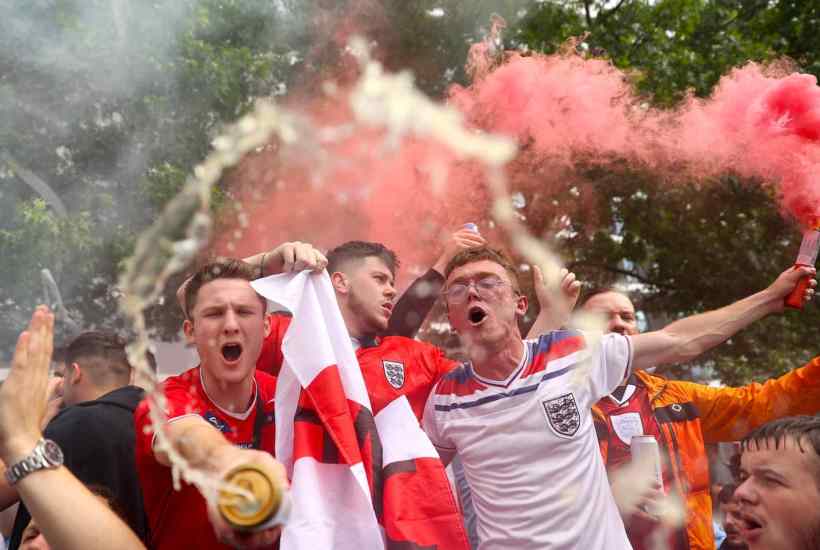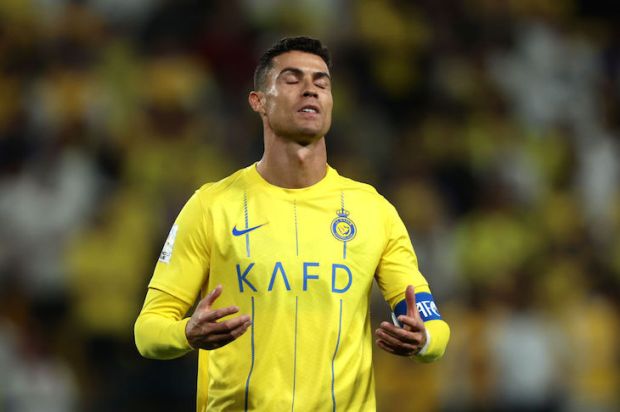Everton secured their Premier League safety last night, coming back from two goals down to bag a 3-2 victory against Crystal Palace. It was all too much for some of their fans who, having endured seven nail-shreddingly tense minutes of extra time, swarmed onto the pitch at the final whistle. There was at least one unpleasant consequence of the pitch invasion as an Everton fan taunted Crystal Palace manager Patrick Viera, who responded with a kick.
This isn’t just a one-off, however. People are seriously starting to ask: are we seeing the return of football hooliganism? Thursday’s League Two play-off match also saw fans on the pitch at its end with punches allegedly thrown at Swindon players. In the Championship play-off, a Sheffield Wednesday player was headbutted by a pitch invader. Earlier this month Liverpool fans booed the national anthem and the appearance of Prince William ahead of the FA Cup Final. And Rangers and Eintracht Frankfurt supporters clashed in Seville before the Europa League final. And who can forget the Euro 2020 final where England fans rushed security at Wembley, nearly forcing the match to be postponed?
Is this a crisis? Does action need to be taken? There are two schools of thought. One is that yes, things are getting out of hand, and if we don’t want a return to the bad old days of the normalised weekly football violence of the 1970s and 1980s, then a swift response is necessary. Indulging errant fans, as Liverpool manager Jurgen Klopp is accused of doing (he refused to condemn the booing at Wembley) and Everton manager Frank Lampard will no doubt be accused of doing (he appeared to condone the pitch invasion at Goodison Park), will only encourage further misbehavior.
On the other hand, perhaps a certain leniency is appropriate at least temporarily. Football fans have had a miserable last couple of years, with ever-changing Covid regulations locking them out of their grounds for much of the time. Deprived of their weekly ration of adrenalin, a certain build-up and spillover of emotion is perhaps to be expected.
Football, as opposed to the languorous, ruminative pastime of cricket or fussily technical stop start rugby, has always been a high-octane game of intense emotion, whose concentrated drama and ancient enmities almost demands a fierce level of fan engagement. This, it could be argued, originally served a useful function as a societal safety valve, allowing working people living hard lives to vent their pent-up frustrations in a generally harmless manner. Football has changed, as have football crowds, but with a cost-of-living crisis, an energy crisis and a healthcare crisis added to the lingering lockdown blues, something of that original cathartic function may have been revived.
And let’s keep things in proportion. It is not as if these ‘outrages’ are constants, they tend to occur at moments of especial importance, at pressure points, and are thus predictable, and, presumably, to a large extent, manageable. Everton’s escape from the drop maintains their 70-year unbroken run in the topflight. For a club that no longer wins trophies the significance of such a record is elevated into something almost totemic for the supporters. It’s all they have. A certain loss of decorum at a seemingly epochal moment is inevitable.
And while fans booing royal personages and perfectly decent hymns may be deplored, it hardly represents a threat to public safety. Indeed, whatever you think of some Liverpool fans’ attitude to their country, they have every right to express their views. That such very public dissent is tolerated is a sign of societal strength not weakness, even if it does raise uncomfortable questions about why there was an official FA investigation when fans initially booed taking the knee. Booing the future king just gets a weary head shake.
There will no doubt be calls to curb the rising tide of what some will describe as a new wave of hooliganism. To a degree this is justified: there is no excuse for players being assaulted or spectators brawling outside grounds. Reports of rising cocaine use amongst fans should be taken extremely seriously.
But let’s scrutinise the evidence before sounding the alarm. Reports of football-related disorder has undoubtedly risen, but then so too have the number of football-related offences, such as indecent chanting or throwing a plastic bottle in the air, and in grounds with a greatly enhanced surveillance of fans.
And let’s separate the serious incidents from the not so serious. In an increasingly bland, censorious world of speech codes and restrictions on personal liberty, a few overexcited people committing a minor transgression or a bit of jeering at the establishment is perhaps no bad thing from time to time. In other words (and this could serve as useful general advice to football fans everywhere): let’s not get carried away.
Got something to add? Join the discussion and comment below.
Get 10 issues for just $10
Subscribe to The Spectator Australia today for the next 10 magazine issues, plus full online access, for just $10.




















Comments
Don't miss out
Join the conversation with other Spectator Australia readers. Subscribe to leave a comment.
SUBSCRIBEAlready a subscriber? Log in